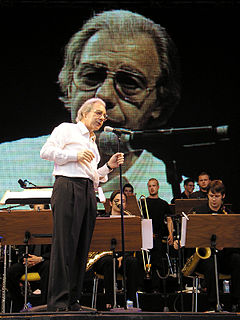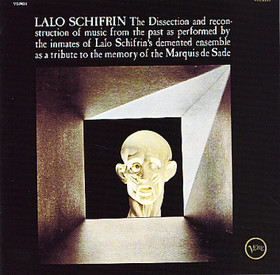
The Dissection and Reconstruction of Music From the Past as Performed by the Inmates of Lalo Schifrin's Demented Ensemble as a Tribute to the Memory of the Marquis De Sade is a 1966 studio album by Lalo Schifrin.

Black Widow is an album by Argentine composer, pianist and conductor Lalo Schifrin recorded in 1976 and released on the CTI label.

Towering Toccata is an album by Argentine composer, pianist and conductor Lalo Schifrin recorded in 1976 and released on the CTI label.
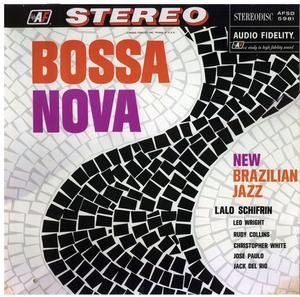
Bossa Nova: New Brazilian Jazz is an album by Argentine composer, pianist and conductor Lalo Schifrin recorded in 1962 and released on the Audio Fidelity label. The album was released during the height of the popularity of bossa nova music in the early 1960s and was one of Schifrin's earliest solo albums after leaving Dizzy Gillespie's band.

Lalo = Brilliance is an album by Argentine composer, pianist and conductor Lalo Schifrin recorded in 1962 and released on the Roulette label. The album was one of Schifrin's earliest solo albums and features musicians from Dizzy Gillespie's band.

Piano Español is an album by Argentine composer, pianist and conductor Lalo Schifrin recorded in 1959 and originally released on the Tico label. The album was rereleased in 1968 on the Roulette label as Lalolé: The Latin Sound of Lalo Schifrin.

Samba Para Dos is an album by Argentine composer, pianist and conductor Lalo Schifrin and American trombonist Bob Brookmeyer recorded in 1963 and released on the Verve label.

Explorations is an album by Argentine composer, pianist and conductor Lalo Schifrin and American drummer Louis Bellson recorded in 1964 and released on the Roulette label. It was the first album composed entirely by Schifrin and features themes that would later be used in the television detective series Mannix.

There's a Whole Lalo Schifrin Goin' On is an album by Argentine composer, pianist and conductor Lalo Schifrin recorded in 1968 and released on the Dot label.
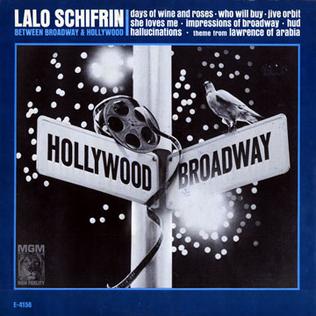
Between Broadway and Hollywood is an album by Argentine composer, pianist and conductor Lalo Schifrin recorded in 1963 and released on the MGM label.
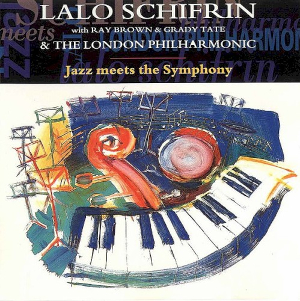
Jazz Meets the Symphony is an album by Argentine-American composer, pianist and conductor Lalo Schifrin with bassist Ray Brown, drummer Grady Tate and the London Philharmonic Orchestra recorded in 1992 and released on the Atlantic label in 1993.

Music from Mission Impossible is an album featuring music composed and conducted by Lalo Schifrin recorded in 1967 and released on the Dot label. The music on this album is rerecorded and extended scores that were originally commissioned for the TV series Mission: Impossible.

Bullitt is a soundtrack album to the motion picture Bullitt, by Argentine composer, pianist and conductor Lalo Schifrin, recorded in 1968 and released on the Warner Bros. label. The tracks released on the album are alternate versions of those heard in the film and were re-recorded at the film producers' insistence for a more "pop" oriented soundtrack.
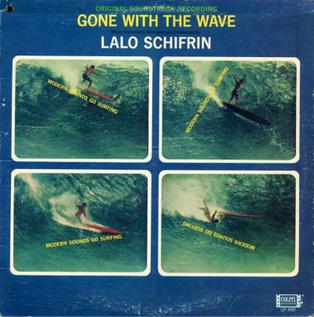
Gone with the Wave is a soundtrack album to the surf film of the same name by Argentine composer, pianist and conductor Lalo Schifrin recorded in 1964 and released on the Colpix label.

Once a Thief and Other Themes is an album of film and television themes by Argentine composer, pianist and conductor Lalo Schifrin recorded in 1965 and released on the Verve label. The album features rerecorded versions of Schifrin's themes from the motion pictures Once a Thief and Joy House and a theme inspired by the television series The Man from U.N.C.L.E..
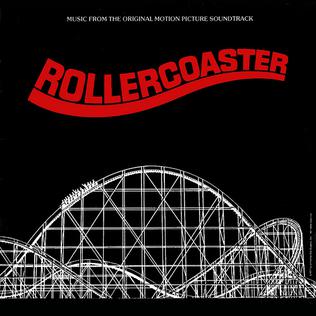
Rollercoaster is a soundtrack album to the motion picture of the same name by Argentine composer, pianist and conductor Lalo Schifrin recorded in 1977 and released on the MCA label.
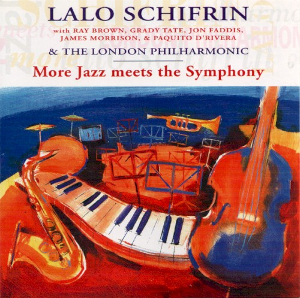
More Jazz Meets the Symphony is an album by Argentine-American composer, pianist and conductor Lalo Schifrin with bassist Ray Brown, drummer Grady Tate, trumpeter Jon Faddis, multi-instrumentalists Paquito D'Rivera and James Morrison, and the London Philharmonic Orchestra recorded in 1993 and released on the Atlantic label. The album was the second in Schifrin's highly acclaimed "Jazz Meets the Symphony" series.

Gillespiana is an album by trumpter Dizzy Gillespie featuring compositions by Lalo Schifrin recorded in 1960 and released on the Verve label. The album features Schifrin's suite written to feature Gillespie and his orchestra.

Carnegie Hall Concert is an album by trumpeter Dizzy Gillespie recorded in 1961 at Carnegie Hall, New York City and released on the Verve label.
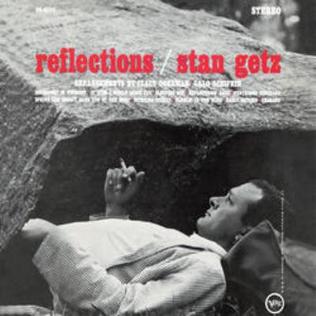
Reflections is an album by saxophonist Stan Getz which was released on the Verve label in 1964.

